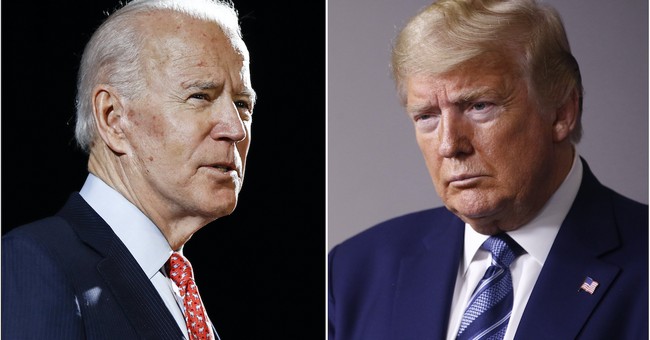
In a CBS/YouGov Poll taken in the battleground state of Arizona September 9-11, results show that a plurality of voters say they will be voting for Joe Biden in the upcoming November election. Biden leads the current President by just 3 points in this poll, 47 to 44.
Finally, I feel like YouGov did a decent job on this poll. In my previous polling pieces, I have found YouGov polling to be completely devoid of the appropriate means of ascertaining the right samples for conducting their polls. While I still feel that their sample is biased, this is about the fairest poll from YouGov that I have reviewed this election cycle.
First, to cover what they did right is that they started using voter registration information as a means of obtaining the appropriate people to contact for conducting the poll. In previous polls, YouGov has used opt-in, self-reported, internet surveys to conduct other polling, which leads to all sorts of issues in reliability with the poll. In this poll, they use the voter registration information to contact people for both registration and propensity, making this poll about a reliable as they come. While they still use online panels, it is unclear if those panels are opt-in, or that the participation on the panel was done by invite based upon registration and propensity data. The biggest mistake they make, which I do believe would affect the results of this poll is in the sample they use of those registered.
According to the Arizona Secretary of State’s office and as of August 2020, of the nearly 4 million registered voters in the state, 32.4% are Democrat, 31.92% are Independents and 34.84% are Republicans. These figures would suggest a 2.4% registration advantage for Republicans. The YouGov poll, however, uses a sample of 35.5% Democrat, 30.1% Independent, and 33.4% Republican, giving Democrats a 2.1% advantage over Republicans and an over 5% shift from registration statistics. When a poll gives a 3% advantage to a party given a 2.1% advantage when they have a 2.4% deficit, it will affect the outcome of the election. Certainly, when using the voter registration data, it doesn’t account for turnout models, but YouGov’s methodology report remains ambiguous as to the means used to account for turn-out aside from suggesting the use of voter data and “2016 Presidential Vote.” Does that mean they used the data to find voters who had turn out in 2016 or does it mean that the information was self-reported by respondents? That remains a bit unclear.
If the results are adjusted based upon current registration statistics, the poll results shift from a 3 point advantage for Biden to a 1.2% advantage for Trump in Arizona. With the updated numbers, Trump would earn 45.8% of the vote in Arizona, compared to Biden’s 44.6%.
Some may say that using registration is not the best route as Democrats may be more likely to vote thus justifying the higher sample. Fortunately for us, we can rely upon other data in the poll to support the registration number. First, it shows that Republicans are more committed to their decision to support their candidate, 89 to 85, which is a slight indicator in the enthusiasm scale used to monitor voter behavior. Second, self-reported statistics show that both Republicans and Democrats are equally motivated to vote in the next election, 98 to 98. Partisan respondents also self-report they are equally likely to vote in the upcoming elections 97 to 97. Third, Donald Trump voters choose Trump because they like him 69% of the time, compared to Biden voters liking Biden, only 37% of the time. That again is another soft indicator of voter enthusiasm, in fact, more Democrats are voting for Biden to oppose Trump than are voting for Biden because they support Biden.
What this tells us is that using registration is not only reliable but if apply the data to the registration statistics, Trump would edge out Biden by at least a point in Arizona.
Another issue for Biden is that he loses Independents to Trump by a point. Mitt Romney’s now-famous 47% comment holds to today, with Independents usually being the deciding factor for Presidential elections. In 3 of the 4 polls I have analyzed over the course of the last week, Independents have broken for Trump. The bright spot for Biden on Independents is that 26% of Trump-supporting Independents state they would potentially consider voting for the former VP, while only 17% of Biden supporting Independents stated they would potentially consider voting for Trump.
Over the last several weeks, suggestions have been made that Biden could be headed for defeat on Election Night but win in the following weeks on Vote-By-Mail Ballots. This poll suggests that 58% of Republicans will be voting in person this election cycle, compared to just 27% of Democrats. Usually, vote-by-mail ballots tend to be used by older, more conservative voters, but with Coronavirus fears continuing in the media cycle, younger more liberal voters will be taking advantage of mail ballots.
If I am forced to make a call on Arizona today, considering the shift in the poll with the advantage to Republicans in registration and the slight advantage for Trump with Independents, I call Arizona for Trump.




